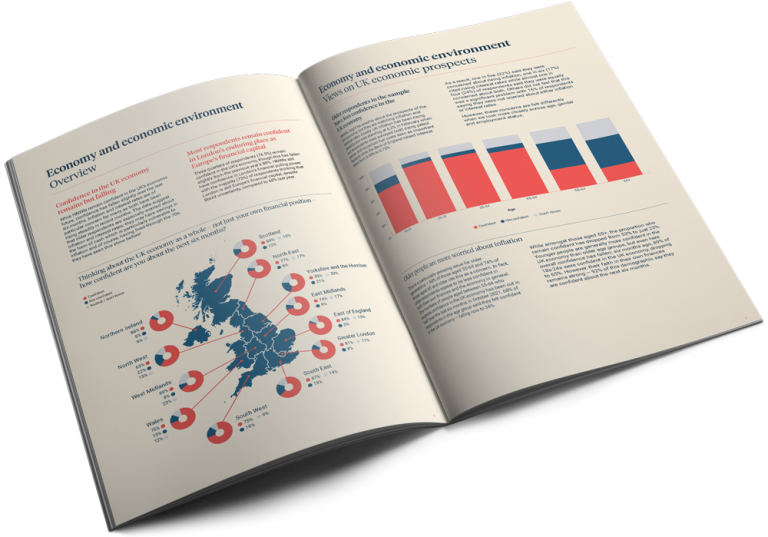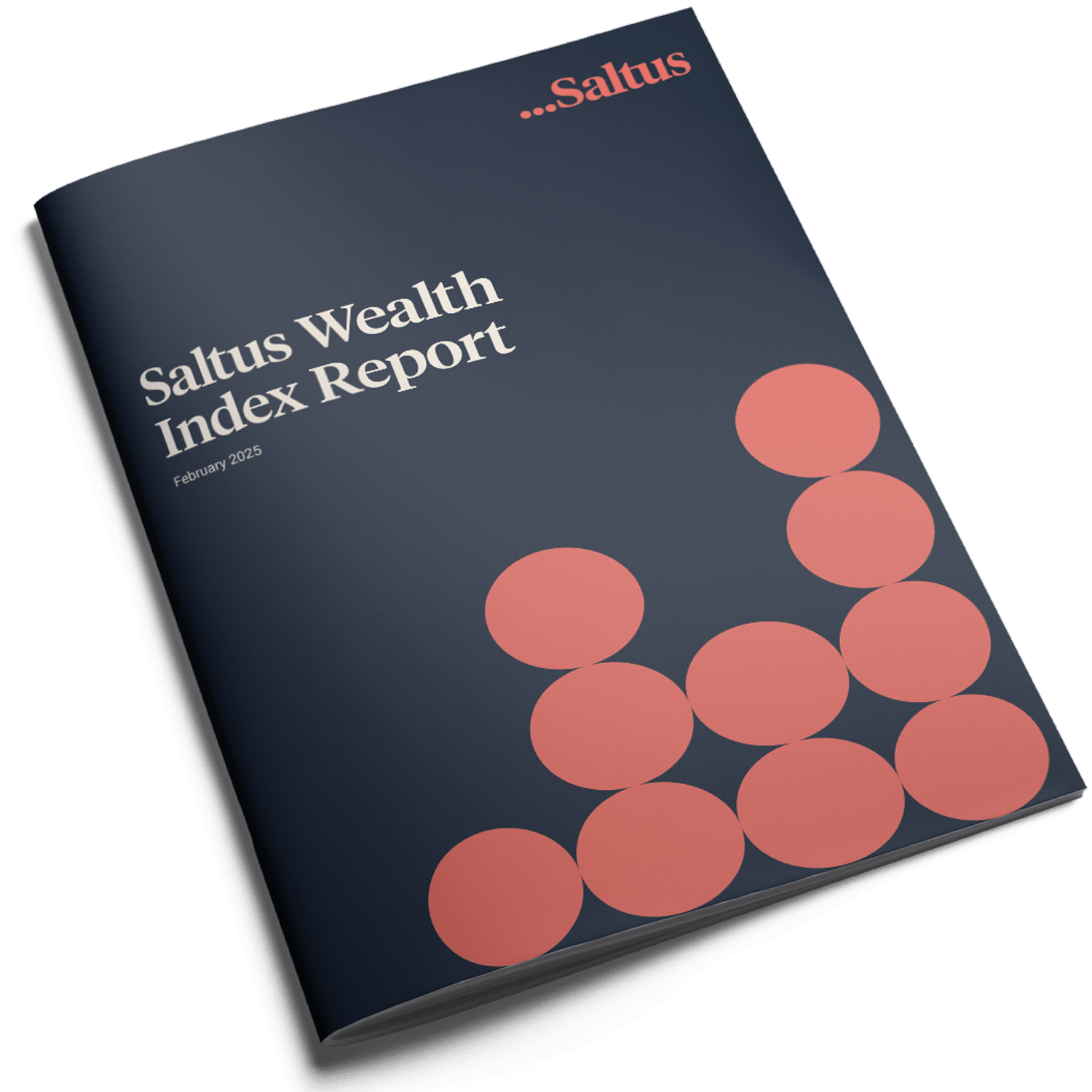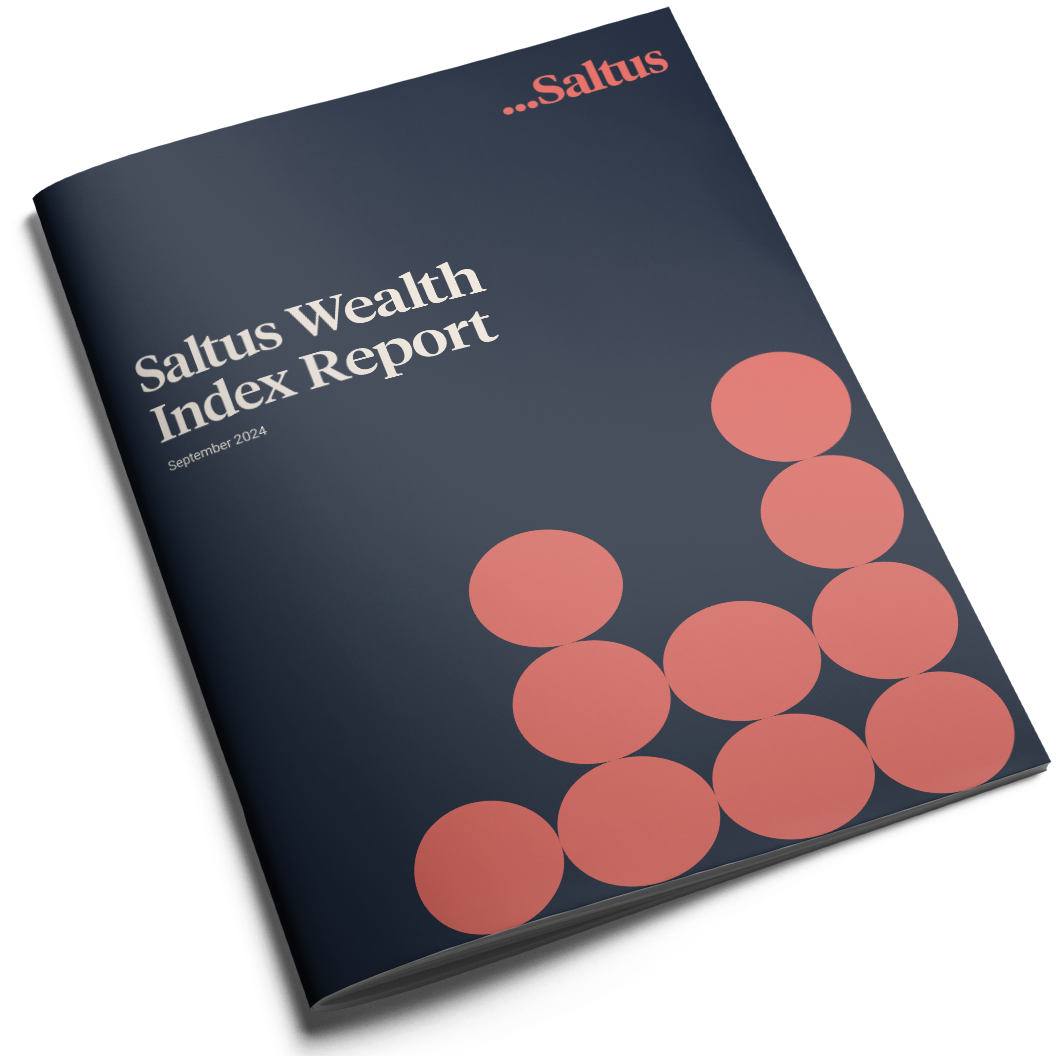Twice a year we track the views of an underreported constituency, Britain’s high net worth individuals. This is the group of people whose enterprise the UK will need as the country addresses the challenges of Levelling Up and Climate Change, quite apart from paying down the country’s debt and financing its deficit.
We survey 1,000 people with assets of over £250,000 with our partners Censuswide and ask respondents a number of questions concerning their thoughts on the UK economy, their personal finances and what they like to do with their lives.
In this report we are delighted to have worked with Dr Mike Peacey, Senior Lecturer in Economics at Bristol University, to aggregate some of these questions into a single index. This is a barometer that will track over time how this critical group feels about their prospects and the prospects for the UK.
Currently the Saltus Wealth Index stands at 68 (out of 100), meaning that while there is still some confidence among our respondents, looming economic issues, predominantly inflation, are a cause of financial anxiety.
More specifically, we have learnt more about our respondents. Overwhelmingly, they have succeeded in life through their own efforts rather than through marriage or inheritance. 72% are self-made, rising to 77% amongst 45-54 year-olds.
They are also hard-working. Those who work full-time work on average 49 hours a week, with some reporting that they work over 80 hours. This dedication to work is impressive in itself but also necessary if the UK is to capitalise on the opportunities that will present themselves over the coming decades.
There is more fascinating detail in this report. I very much hope you enjoy it and find it useful.










